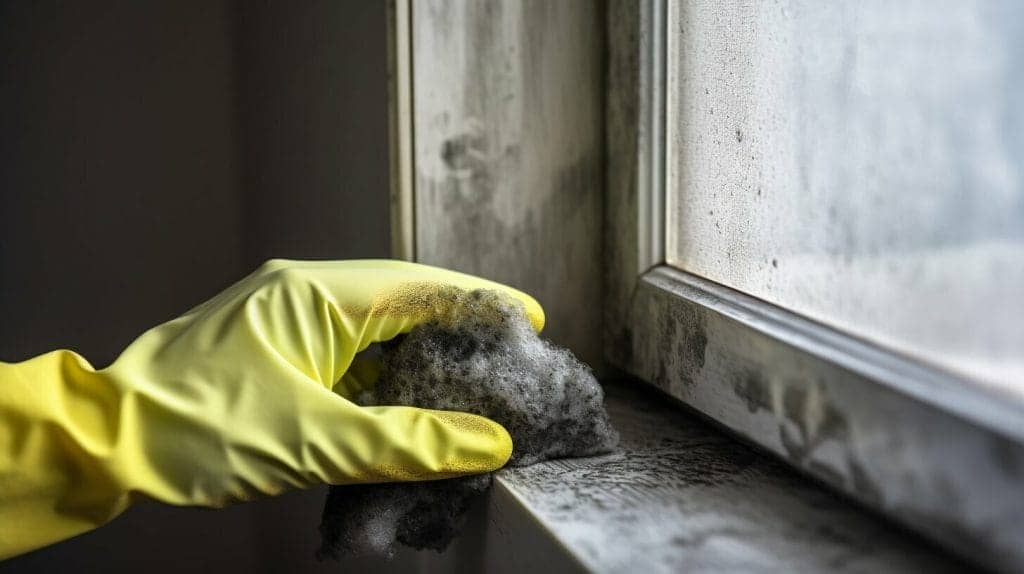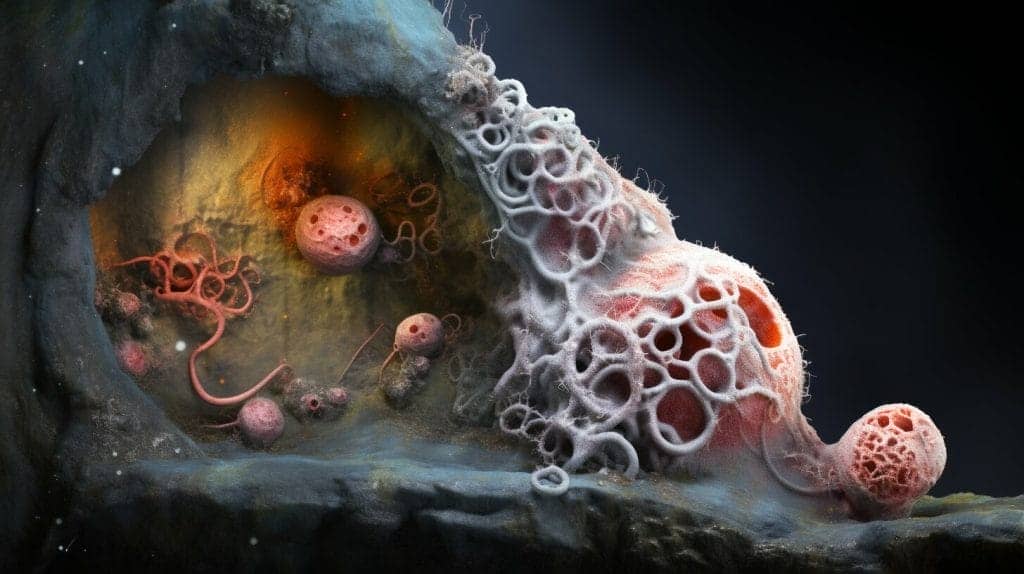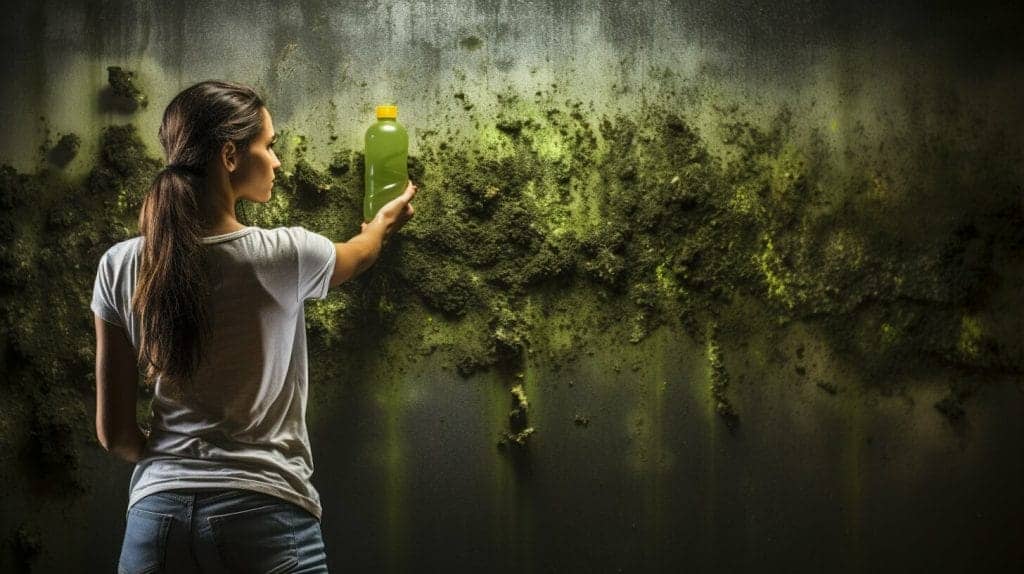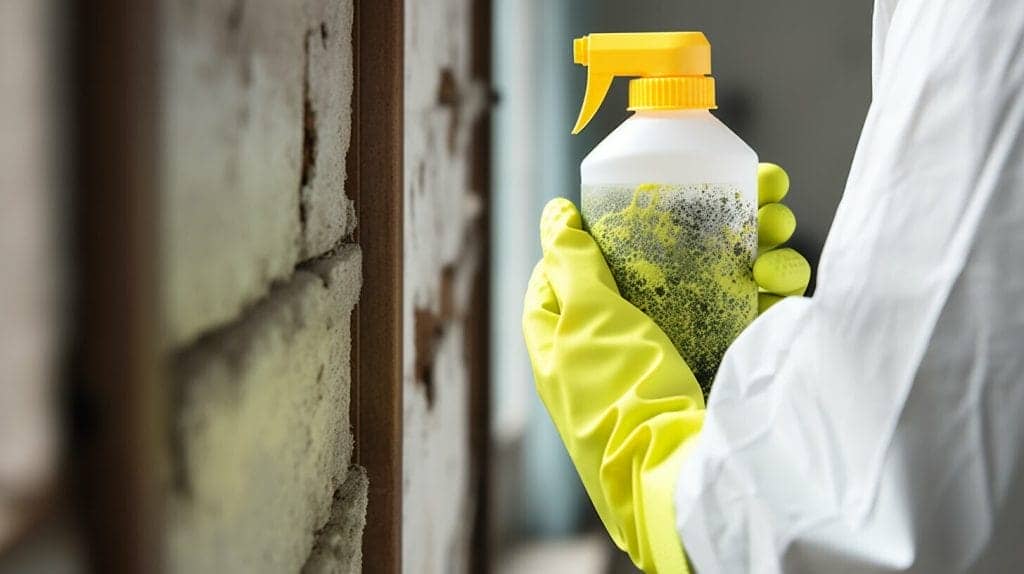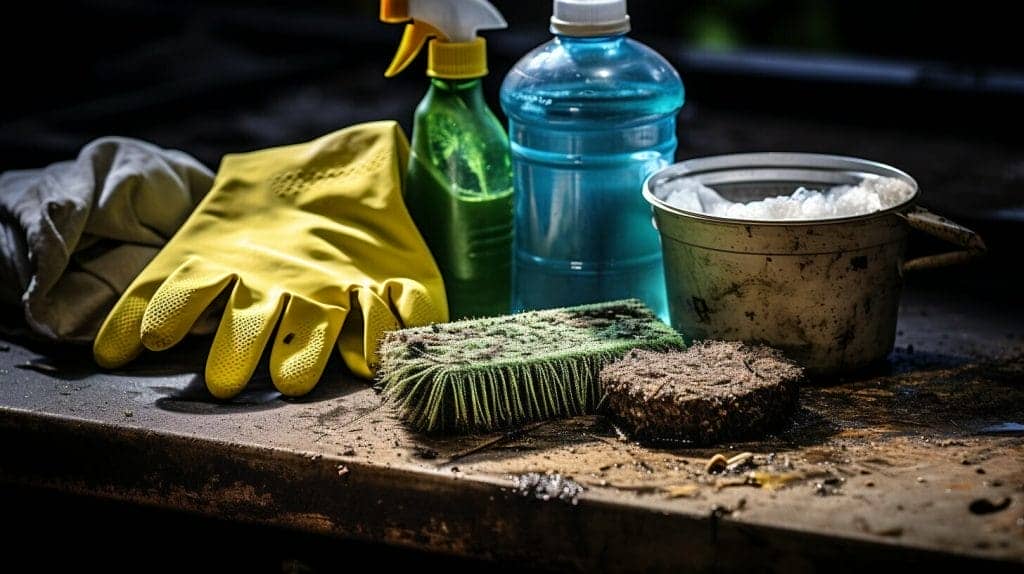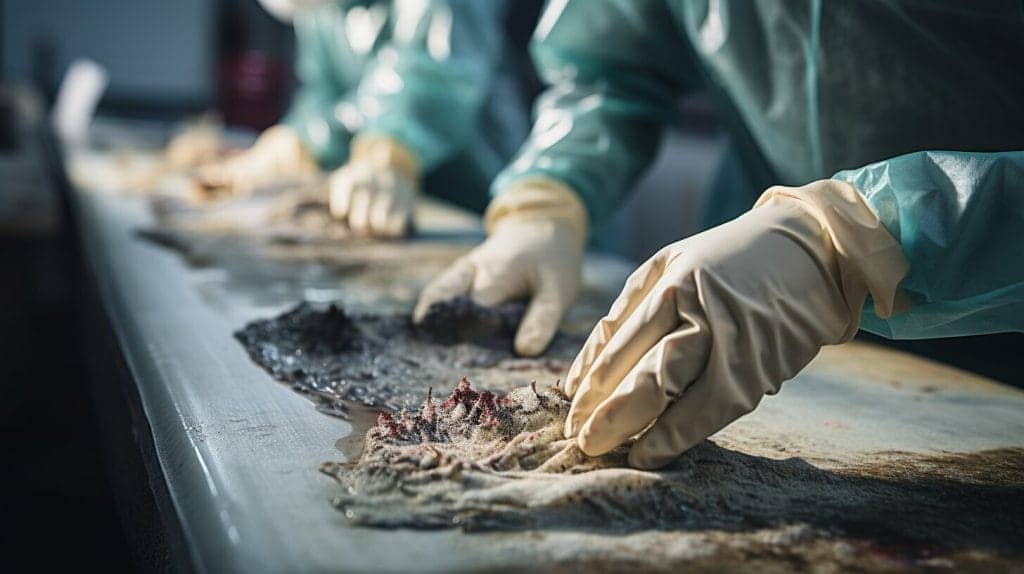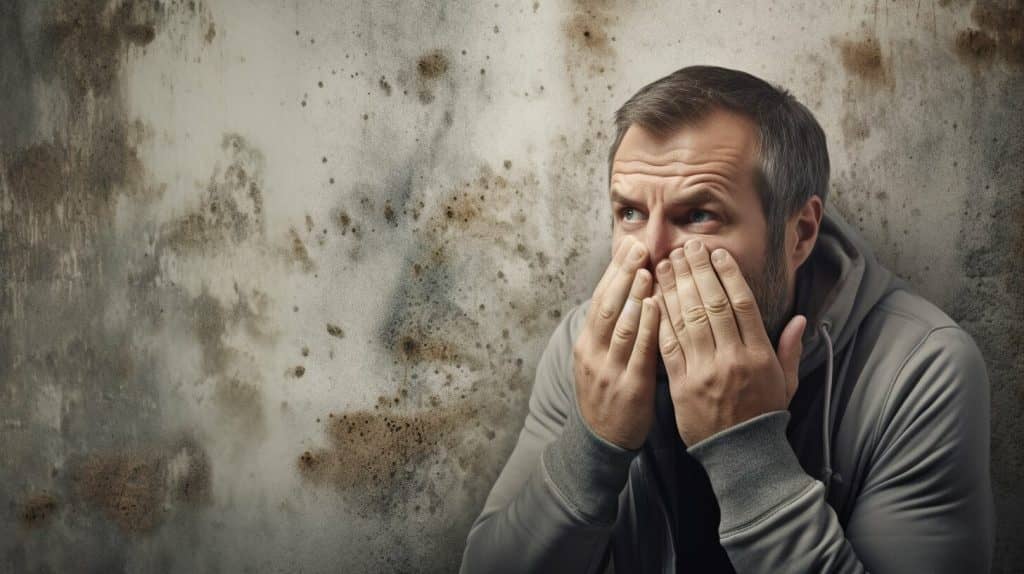Mold exposure can have serious health implications, especially in individuals with weakened immune systems or preexisting respiratory conditions. Even those without preexisting conditions can experience symptoms that warrant medical attention. If you suspect that you or a loved one has been exposed to mold, it is important to be aware of the signs and symptoms of mold exposure that should prompt a visit to the doctor.
The symptoms of mold exposure can vary depending on the individual and the extent of the exposure. Common symptoms include coughing, sneezing, and skin irritation. More serious symptoms can include difficulty breathing, chest tightness, and even neurological symptoms like memory loss or confusion.
If you experience any of these symptoms after being exposed to mold, it is important to seek medical attention right away. Even if your symptoms are mild, they can indicate a larger problem that requires treatment. In some cases, delaying medical care can lead to more serious health issues down the line.
It is also important to remember that some people are more sensitive to mold than others, and may experience symptoms with even minimal exposure. If you suspect that you or a loved one has been exposed to mold, it is always better to err on the side of caution and seek medical attention if any symptoms arise.
Health Risks of Mold Exposure
Mold exposure can have serious health implications and can affect people differently. Inhaling or touching mold spores can trigger allergic reactions, asthma attacks, and respiratory problems. Individuals with weakened immune systems may be more vulnerable to infections caused by molds.
Allergic Reactions
People who are allergic to mold may experience symptoms such as sneezing, runny nose, red or itchy eyes, and skin rash. In severe cases, they may develop hives or difficulty breathing.
Asthma
Mold spores can trigger asthma symptoms such as coughing, wheezing, and shortness of breath. For people with asthma, exposure to mold can lead to serious and life-threatening asthma attacks.
Respiratory Problems
Prolonged exposure to mold can cause respiratory problems such as chronic obstructive pulmonary disease (COPD), bronchitis, and fungal lung infections.
Infections
Mold can cause various types of infections, including allergic bronchopulmonary aspergillosis, mycosis, and hypersensitivity pneumonitis. These infections can be particularly dangerous for individuals with weakened immune systems, such as people with HIV/AIDS or those undergoing chemotherapy.
Common Symptoms of Mold Exposure
Mold exposure can cause a variety of symptoms, both mild and severe. Here are some of the most common symptoms that individuals may experience:
- Coughing
- Sneezing
- Runny or stuffy nose
- Itchy eyes, nose, and throat
- Watery eyes
- Skin irritation or rash
- Headache
- Shortness of breath
- Fatigue
- Dizziness
It is important to note that these symptoms can also be caused by other factors, such as allergies or a cold. If you suspect that mold may be the cause of your symptoms, it is best to seek medical attention to determine the underlying cause and receive appropriate treatment.
When to Seek Medical Help for Mold Exposure
If you believe you have been exposed to mold, it is important to know when to seek medical attention. In some cases, mold exposure can cause serious health issues that may require immediate medical treatment. Here are some signs that you should see a doctor:
- If your symptoms persist or worsen, even after taking steps to reduce or eliminate mold in your environment.
- If you experience difficulty breathing or shortness of breath.
- If you have a pre-existing respiratory condition such as asthma or chronic obstructive pulmonary disease (COPD).
- If you have a weakened immune system due to a medical condition or medication.
- If you experience symptoms of a fungal infection, such as fever, coughing up blood, or persistent chest pain.
It is important to note that some people may be more sensitive to mold than others, and may experience symptoms even at lower levels of exposure. If you are unsure whether your symptoms are related to mold exposure, it is always best to consult with a medical professional.
Medical Treatment for Mold Exposure
If you suspect that you have been exposed to mold and are experiencing symptoms, it is important to seek medical attention. A doctor will be able to evaluate your symptoms and recommend an appropriate course of treatment.
The type of treatment for mold exposure depends on the severity of your symptoms and the duration of your exposure. Some common treatments include:
| Treatment | Description |
|---|---|
| Antihistamines | These medications are used to treat allergy symptoms, such as sneezing and itching. |
| Nasal corticosteroids | These medications can help reduce inflammation in the nasal passages, which can alleviate nasal congestion and other allergy symptoms. |
| Bronchodilators | These medications are used to treat respiratory symptoms, such as wheezing and shortness of breath. |
| Antifungal medications | If you have a fungal infection as a result of mold exposure, your doctor may prescribe antifungal medication. |
In addition to medication, your doctor may also recommend other treatments, such as allergy shots or pulmonary rehabilitation.
Preventing Further Exposure
To prevent further exposure to mold, it is important to remove the source of the mold and clean up any existing mold in your home. If you are unable to do so yourself, consider hiring a professional mold remediation service.
It is also important to address any underlying issues that may be contributing to the growth of mold, such as leaky pipes or high humidity levels in your home. Your doctor may be able to provide additional guidance on how to prevent mold growth and reduce your risk of exposure.
Reasons to Consult a Doctor for Mold Exposure
There are several reasons why someone who has been exposed to mold may need to seek medical attention. Even if symptoms are mild, it is important to monitor them closely and consult a doctor if they persist or worsen. Here are some additional reasons why seeking medical advice for mold exposure may be necessary:
- Underlying Health Conditions: Individuals with pre-existing respiratory conditions such as asthma or allergies may be more susceptible to the health risks associated with mold exposure. If you have a pre-existing condition, it is especially important to consult a doctor if you suspect you have been exposed to mold.
- Occupational Exposure: If you have been exposed to mold in your workplace, it is crucial to inform your employer and seek medical attention. Occupational exposure to mold can have serious health consequences and may require specific medical treatment.
- Pregnancy: Pregnant women who have been exposed to mold may experience additional health risks and should consult their doctor if they suspect exposure.
- Unexplained Symptoms: Mold exposure can cause a wide range of symptoms, some of which may be vague or difficult to attribute to another cause. If you are experiencing unexplained symptoms such as fatigue, headaches, or mood changes, it may be worth consulting a doctor to rule out mold exposure as a possible cause.
Overall, it is important to take mold exposure seriously and seek medical attention if you suspect exposure. With proper diagnosis and treatment, the health risks associated with mold exposure can be effectively managed.
Section 7: Mold-Related Health Issues
Exposure to mold can lead to a variety of health issues, both immediately and in the long term. Here are some of the most common mold-related health problems:
| Health Issue | Description |
|---|---|
| Allergic reactions | Some individuals may experience allergic reactions to mold, ranging from mild to severe. Symptoms can include sneezing, runny nose, itchy eyes, and skin rash. |
| Asthma | Mold exposure can trigger asthma attacks in individuals who have the condition, leading to coughing, wheezing, and difficulty breathing. |
| Infections | Exposure to certain types of mold can lead to infections, particularly in individuals with weakened immune systems. |
| Toxic mold syndrome | Some types of mold produce mycotoxins, which can cause a variety of symptoms including fatigue, headache, and difficulty concentrating. This condition is known as toxic mold syndrome. |
It is important to note that the severity of mold-related health issues can vary widely depending on the individual and the type and amount of mold to which they have been exposed. If you are experiencing any symptoms and suspect that mold exposure may be to blame, it is important to talk to a medical professional.
Prevention of Mold Exposure
Preventing mold exposure is the best way to protect your health from the potential hazards associated with mold. Here are some tips on how to prevent mold growth in your home:
- Keep humidity levels low by using an air conditioner or dehumidifier.
- Fix any leaks in your home, such as those from pipes, roofs, or windows, as soon as possible to prevent moisture buildup.
- Clean and dry water-damaged carpets, rugs, and furniture within 24 to 48 hours of exposure.
- Use mold-resistant products, such as drywall or paint, in areas that are prone to moisture accumulation.
- Improve ventilation in your home by using exhaust fans or opening windows to increase air flow.
- Regularly clean and maintain air conditioning units and ductwork to prevent mold growth.
By taking these preventative measures, you can significantly reduce your risk of exposure to mold and the potential health hazards it can cause.
Testing for Mold Exposure
If you suspect that you have been exposed to mold, it may be necessary to undergo testing to confirm your suspicions. There are several different types of tests that can be done to determine if you have been exposed to mold, including:
| Test Type | Description |
|---|---|
| Blood Tests | Blood tests can be conducted to check for the presence of antibodies that the body produces in response to mold exposure. |
| Urine Tests | Urine tests can be used to detect mycotoxins, which are toxic substances produced by some types of mold. |
| Skin Tests | Skin tests involve exposing a small area of skin to mold extracts to see if an allergic reaction occurs. |
| Air Tests | Air tests can be conducted to measure the concentration of mold spores in the air. |
It is important to note that testing for mold exposure is not always necessary. In many cases, medical professionals can diagnose mold exposure based on symptoms and a physical examination. However, testing can be useful in cases where symptoms are unclear or if legal action is being taken.
What to Expect During Testing
If you undergo testing for mold exposure, your doctor will likely give you specific instructions on how to prepare for the test. Blood and urine tests typically require no special preparation, while skin tests may require you to stop taking certain medications beforehand. Air tests may require you to vacate your home or workplace temporarily.
The specific testing procedures will vary depending on the type of test being conducted. Blood and urine tests typically involve the collection of samples, which are sent to a laboratory for analysis. Skin tests involve the application of small amounts of mold extracts to the skin, usually on the forearm or back. Air tests involve the use of specialized equipment to measure the concentration of mold spores in the air.
After the testing is complete, your doctor will review the results with you and provide recommendations for any necessary treatment or further testing.
Cleaning Up Mold
If you have discovered mold in your home, it is important to take action to clean it up as soon as possible. Mold can pose serious health risks, especially to those with respiratory issues and weakened immune systems. Here are some steps to follow when cleaning up mold:
1. Identify the Source
First, it is important to identify the source of the mold and fix the problem to prevent future growth. This could mean fixing a leaky pipe, improving ventilation in a room, or removing damp materials from your home.
2. Wear Protective Gear
When cleaning up mold, it is important to protect yourself from exposure by wearing gloves, a mask, and eye protection. This will prevent you from inhaling spores or coming into contact with the mold.
3. Remove Affected Materials
If the mold has spread to any materials such as drywall or carpeting, it may be necessary to remove and replace them. This is because mold can embed itself deep within porous materials and be difficult to completely remove.
4. Clean Thoroughly
Once you have removed any affected materials, it is important to clean the area thoroughly with a mold-killing cleaner. You can find these cleaners at most hardware stores or hire a professional cleaning company to handle the job.
5. Dry the Area Completely
After cleaning, it is important to completely dry the area to prevent further mold growth. Use fans or dehumidifiers to speed up the drying process.
Following these steps can help you safely and effectively clean up mold in your home. If you are dealing with a large amount of mold or have any concerns about the cleanup process, it is best to consult a professional for assistance.
Mold Exposure and Medical Advice
It is important to seek medical advice if you suspect that you have been exposed to mold. While many people may experience mild symptoms that resolve on their own, others may have more severe or persistent symptoms that require medical attention.
If you are experiencing any symptoms of mold exposure, the first step is to see your primary care physician or an allergist/immunologist. They can help determine if your symptoms are related to mold exposure and recommend the appropriate course of treatment.
What to Expect During a Doctor’s Visit
During your doctor’s visit, you can expect to be asked about your symptoms, medical history, and any potential exposure to mold. Your doctor may also perform a physical exam and order diagnostic tests, such as blood tests or imaging studies.
If your doctor suspects that your symptoms are related to mold exposure, they may refer you to a specialist for further evaluation and treatment. This may include an allergist/immunologist, pulmonologist, or infectious disease specialist, depending on your specific symptoms and medical history.
Finding a Qualified Medical Professional
When seeking medical advice for mold exposure, it is important to find a qualified medical professional who has experience diagnosing and treating mold-related illnesses. You can start by asking for a referral from your primary care physician or checking with local allergists and immunologists.
It is also recommended to choose a medical professional who is board-certified in their specialty and has experience treating mold-related illnesses, as this can ensure that you receive the best possible care.
Legal Considerations for Mold Exposure
Mold exposure can have serious health consequences for individuals, and in some cases, legal action may be necessary. If you believe you have been exposed to mold due to negligence or misconduct, it is important to seek legal advice to understand your rights and options.
Liability
Property owners have a responsibility to maintain safe and healthy environments for tenants and visitors. If a property owner fails to address mold issues in a timely and appropriate manner, they may be held liable for any resulting health problems.
It is important to note that liability may vary based on the specifics of the case, including the extent of the mold exposure and the actions taken by the property owner.
Compensation for Damages
If you have suffered health problems due to mold exposure, you may be entitled to compensation for damages. This may include medical expenses, lost wages, and pain and suffering.
It is important to consult with a legal professional who can help you understand your rights and options for pursuing compensation.
Statute of Limitations
It is important to act quickly if you plan to pursue legal action for mold exposure. Each state has a statute of limitations, which limits the amount of time you have to file a claim. If you miss the deadline, you may lose your right to pursue legal action.
It is important to consult with a legal professional as soon as possible if you believe you have been exposed to mold due to negligence or misconduct.
FAQ
Here are answers to some frequently asked questions about seeking medical attention for mold exposure:
What should I expect during a doctor’s visit for mold exposure?
During a visit with a medical professional, you will likely be asked about your symptoms and the duration of your exposure to mold. The doctor may also conduct a physical exam and order diagnostic tests to determine the extent of your exposure and any health issues that may have resulted from it.
How do I find a doctor who specializes in mold exposure?
You can start by checking with your primary care physician or insurance provider for recommendations. It’s important to find a doctor who has experience in treating patients with mold-related health issues, as they will be better equipped to provide you with effective treatment and advice.
What are some signs that I should see a doctor for mold exposure?
If you experience symptoms such as persistent coughing, difficulty breathing, or skin irritation that lasts for more than a few days, it’s important to seek medical attention. Additionally, if you have a pre-existing respiratory condition such as asthma, exposure to mold can exacerbate your symptoms and require medical treatment.
Can mold exposure be treated with medication?
While there is no specific medication to treat mold exposure, your doctor may prescribe medications to manage symptoms such as nasal congestion or skin irritation. In severe cases, hospitalization may be necessary to treat respiratory infections or other complications.
How can I prevent mold exposure?
The best way to prevent mold exposure is to maintain a dry, well-ventilated environment. This includes using dehumidifiers in damp areas, repairing any leaks or water damage promptly, and cleaning up any visible mold promptly using proper protective gear.
What legal options do I have if I have suffered health issues due to mold exposure?
If you have suffered health issues as a result of exposure to mold, you may be entitled to compensation for damages. It’s important to consult with a qualified attorney to understand your legal options and determine the best course of action based on the specific circumstances of your case.
Dr. Francisco Contreras, MD is a renowned integrative medical physician with over 20 years of dedicated experience in the field of integrative medicine. As the Medical Director of the Oasis of Hope Hospital in Tijuana, Mexico, he has pioneered innovative treatments and integrative approaches that have been recognized globally for the treatment of cancer, Lyme Disease, Mold Toxicity, and chronic disease using alternative treatment modalities. Dr. Contreras holds a medical degree from the Autonomous University of Mexico in Toluca, and speciality in surgical oncology from the University of Vienna in Austria.
Under his visionary leadership, the Oasis of Hope Hospital has emerged as a leading institution, renowned for its innovative treatments and patient-centric approach for treating cancer, Lyme Disease, Mold Toxicity, Long-Haul COVID, and chronic disease. The hospital, under Dr. Contreras's guidance, has successfully treated thousands of patients, many of whom traveled from different parts of the world, seeking the unique and compassionate care the institution offers.
Dr. Contreras has contributed to numerous research papers, articles, and medical journals, solidifying his expertise in the realm of integrative medicine. His commitment to patient care and evidence-based treatments has earned him a reputation for trustworthiness and excellence. Dr. Contreras is frequently invited to speak at international conferences and has been featured on CNN, WMAR2 News, KGUN9 News, Tyent USA, and various others for his groundbreaking work. His dedication to the medical community and his patients is unwavering, making him a leading authority in the field.
Contreras has authored and co-authored several books concerning integrative therapy, cancer, Lyme Disease and heart disease prevention and chronic illness, including "The Art Science of Undermining Cancer", "The Art & Science of Undermining Cancer: Strategies to Slow, Control, Reverse", "Look Younger, Live Longer: 10 Steps to Reverse Aging and Live a Vibrant Life", "The Coming Cancer Cure Your Guide to effective alternative, conventional and integrative therapies", "Hope Medicine & Healing", "Health in the 21st Century: Will Doctors Survive?", "Healthy Heart: An alternative guide to a healthy heart", “The Hope of Living Cancer Free”, “Hope Of Living Long And Well: 10 Steps to look younger, feel better, live longer” “Fighting Cancer 20 Different Ways”, "50 Critical Cancer Answers: Your Personal Battle Plan for Beating Cancer", "To Beat . . . Or Not to Beat?", and “Dismantling Cancer.”



